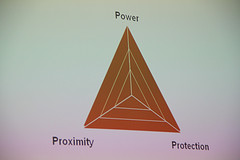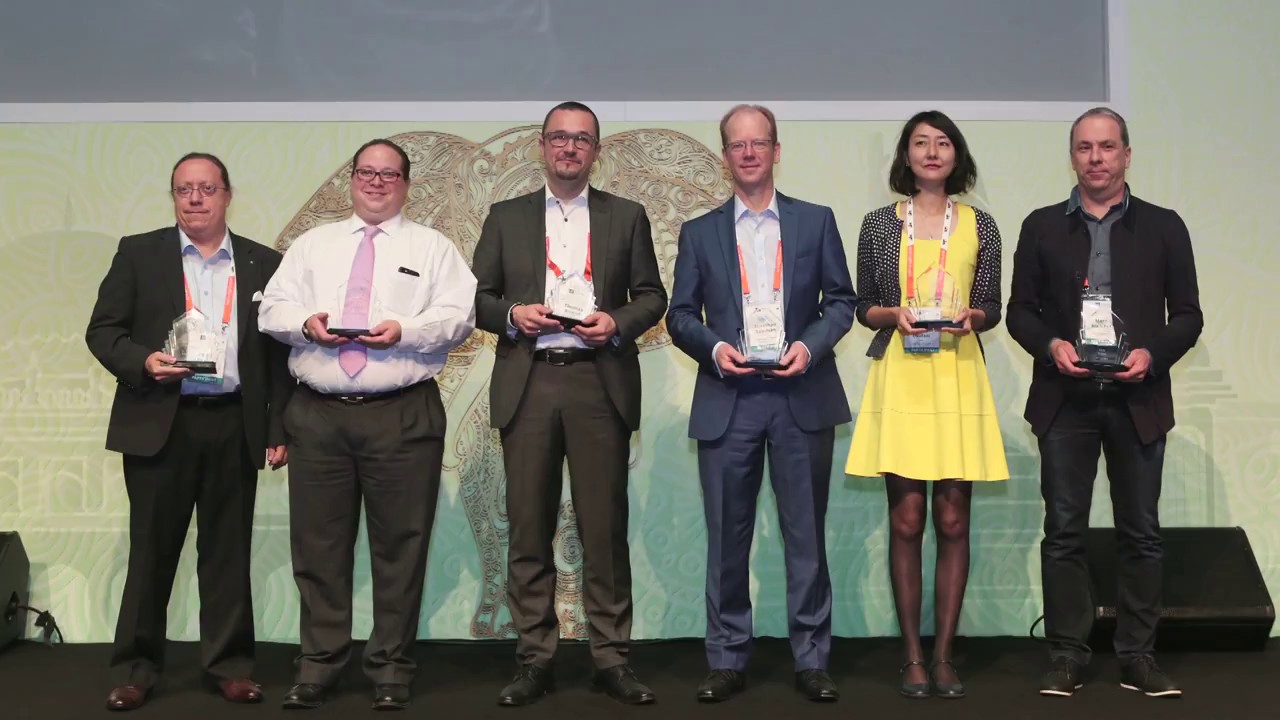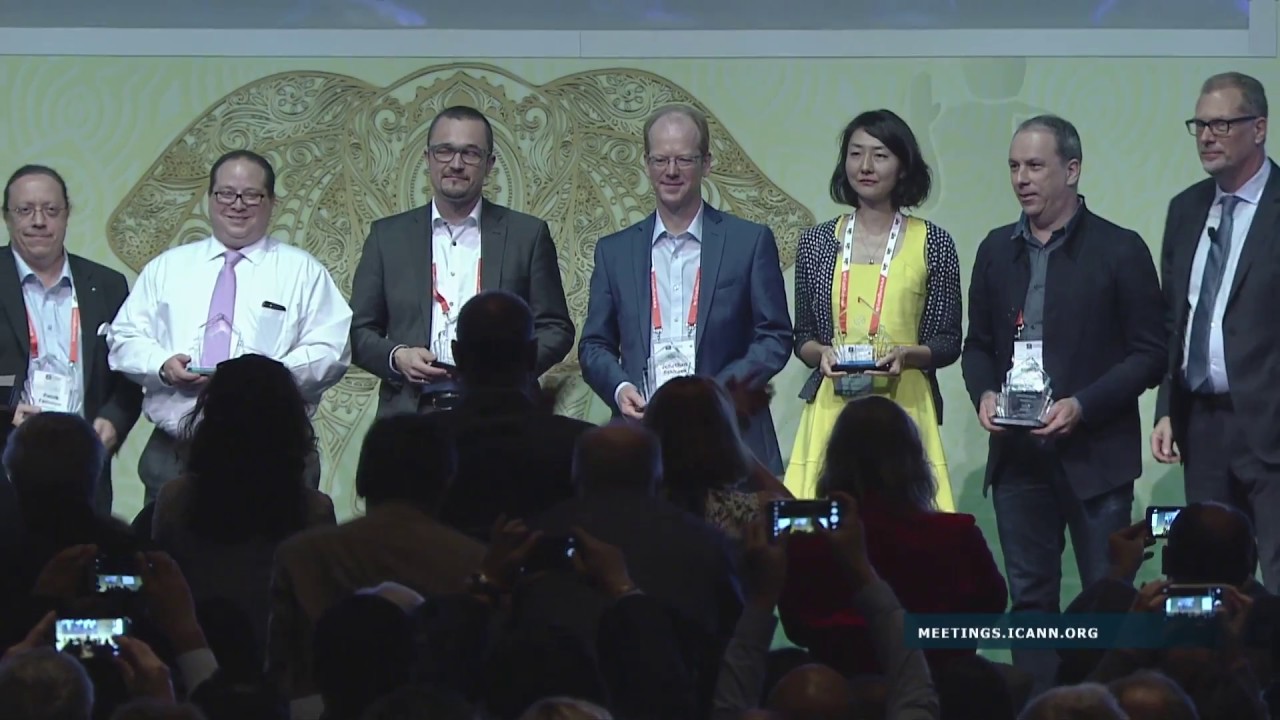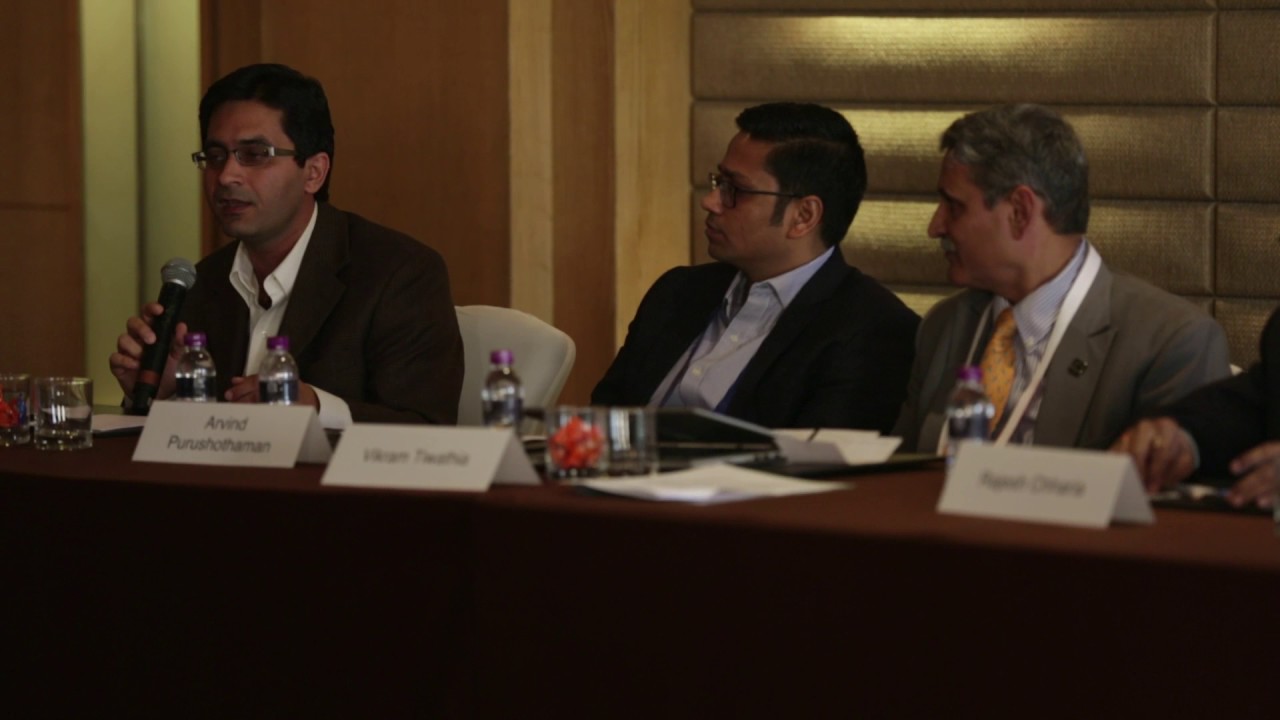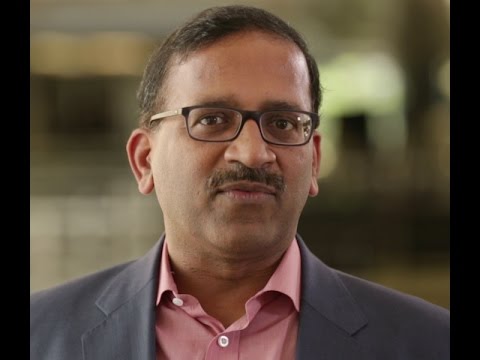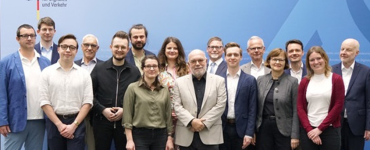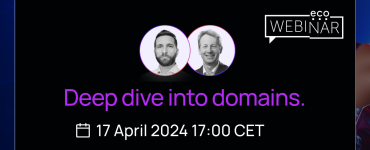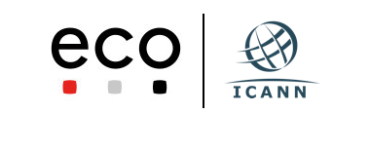The Largest ICANN Public Meeting in ICANN’s History
With more than 3,100 participants checked in at the ICANN57 meeting held in Hyderabad, India, it was not only the largest one so far in ICANN’s history, but also the first one applying the Meeting C format according to the new ICANN Meeting Strategy, the first meeting that had two Public Forums and the first one after the IANA Stewardship Transition.
Following the successful completion of the transition, the Public Technical Identifiers (PTI) started to perform the IANA functions. PTI performs the IANA functions pursuant to an IANA Naming Functions Contract with ICANN and the subcontracts with ICANN for the performance of the numbering and protocol parameter services. At the same time, the Customer Standing Committee (CSC) began to monitor PTI’s performance of the IANA naming function by analyzing performance reports on a monthly basis and publishing its findings. The CSC is authorized to undertake remedial action to address poor performance, and if performance issues are not remedied, the CSC is authorized to escalate the performance issues to the ccNSO and GNSO for consideration. Additionally, the CSC may recommend changes to the naming Service Level Expectations as well as enhancements to the provision of the IANA naming services.


eco was represented by Thomas Rickert (GNSO / CCWG Accountability), Wolf-Ulrich Knoben (GNSO / ISPCP) and Lars Steffen (UASG / ISPCP) at ICANN57. For the Cross Community Working Group on enhancing ICANN Accountability (CCWG Accountability), ICANN57 started on Wednesday, November 2 with a full day Work Stream 2 Face to Face Meeting. The CCWG discussed interim results of the subgroups’ work and had a particularly engaged 70 min discussion with ICANN CEO Göran Marby on the function of the complaints officer that he had announced shortly before the meeting started. Marby showed a keen interest in the CCWG’s work and offered a continuous dialogue with the group.
On Saturday, 5 November ICANN57 was officially opened with the traditional Opening Ceremony. Speeches have been held by Samiran Gupta, Head of India for ICANN, Union Minister of Law and Justice and Electronics and Information Technology, Mr. Ravi Shankar Prasad, the Minister for Information Technology of Telangana, Mr. KT Rama Rao, Dr. Steve Crocker, Chairman of the ICANN board and Göran Marby, President and CEO of ICANN. During the Ceremony and together with several other IANA Stewardship Transition Heroes, eco Director Names & Numbers Thomas Rickert was one of the 2016 Leadership Award winners. The Award recognizes members of the community for extraordinary commitment to ICANN.
2016 Leadership Award Winners
- Alissa Cooper,
Chair, IANA Stewardship Transition Coordination Group - Marc Blanchet,
Co-Chair, IANAPLAN Working Group - Leslie Daigle,
Co-Chair, IANAPLAN Working Group - Mohamed El Bashir,
Vice Chair, IANA Stewardship Transition Coordination Group - Patrik Fältström,
Vice Chair, IANA Stewardship Transition Coordination Group - Lise Fuhr,
Co-Chair, Cross Community Working Group to Develop an IANA Stewardship Transition Proposal on Naming Related Functions - Nurani Nimpuno,
Vice Chair, Numbering Resources: Consolidated Regional Internet Registry IANA Stewardship Proposal Team - Izumi Okutani,
Chair, Numbering Resources: Consolidated Regional Internet Registry IANA Stewardship Proposal Team - Thomas Rickert,
Co-Chair, Cross Community Working Group on Enhancing ICANN Accountability - Jonathan Robinson,
Co-Chair, Cross Community Working Group to Develop an IANA Stewardship Transition Proposal on Naming Related Functions - León Sánchez,
Co-Chair, Cross Community Working Group on Enhancing ICANN Accountability - Mathieu Weill,
Co-Chair, Cross Community Working Group on Enhancing ICANN Accountability
Internet Service Providers and Connectivity Providers Constituency (ISPCP)
During the ICANN57 Meeting the ISPCP had several closed and open meetings that covered a number of topics like updates from the GNSO Council, the Council motion on the GNSO Bylaws draft report and the GNSO Vice-Chair/Chair election. The Universal Acceptance Steering Group contributed an update on its current status of work. Recent developments concerning the Transition of the IANA Stewardship and ICANN Accountability were discussed and the Commercial Stakeholder Group held a meeting with the ICANN Board and ICANN CEO Göran Marby with ISPCP participation.
Within the GNSO is still a principle debate about how and through whom the community will be represented in the future “Empowered Community”. The question touches the structures in the GNSO Council. The existing voting mechanism puts the commercial stakeholder group at a disadvantage and gives the registry and registrar stakeholder groups the opportunity to block any decision. A compromise proposal with a public forum phase as well as a subsequent legal assessment of the question was not accepted. The decision was postponed. It can be assumed that the US administration will continue to look very closely at how ICANN and the ICANN community will develop after the transition, and whether the path taken is sustainable.


On Monday, 7 November 2016 the ISPCP together with ICANN had organized a 5 hours Outreach Event for ISPs, Telcos and governmental representatives from India and all over the world. Under the title „Connect with What’s Next – Companies, Clients and Connectivity“ four panel discussions and lightning talks attracted more than 150 participants. The first panel discussed, how companies can learn from the example of an Indian companies’ digital transformation. Because providing Internet connectivity is driving revenue growth and Innovation, a coordinated strategy will help to bring the next billion users online. In particular, the difficulties of internet provision in rural areas have been addressed. Financing and technical problems play a subordinate role. The Indian government has launched a program to allow “every village” access to broadband services by 2020. The expectation is an increase of about 200 million users.
The second panel discussed the role of Internet Exchange Points (IXPs), as they are providing a key infrastructure component for ISPs, Connectivity Providers and Content Delivery Networks. IXPs can help making developing regions economically autonomous, enable savings of millions in telecommunications costs and raise additional revenues while simultaneously speeding local data exchange, and encouraging the development of locally hosted content and services. The panelists discussed best practices and hurdles building new IXPs in underserved regions. This panel was joined by Lars Steffen, representing DE-CIX as a part of the eco group.


The final panel discussed the recent developments in the Internet’s Domain Name System, like Internationalized Domain Names (IDNs) and new generic Top Level Domains (new gTLDs) because they are re-inventing how companies reach new clients and markets, new Internet Protocol addresses (IPv6) that are enabling the Internet of Things (IoT) and important upgrades will improve security (DNSSEC/KSK Rollover) and compatibility (UA). The final Flash Talk addressed the question, which benefits the deployment of L-Root can bring.
High Interest Topics & ccNSO
Thomas Rickert joined several panels and sessions, one of them covered the (ab)use of the DNS to prevent access to content on the Internet. The session covered two parts: firstly, whether this is a topic within ICANN’s scope or not and secondly, if there are limits to terms of service by registries in their terms and conditions (T&Cs). Looking at ICANN´s Bylaws shows that content control is actually not within ICANN’s remit. But clauses from the new gTLD contracts were grandfathered into the Bylaws. These give the opportunity to restrict registrations under specific gTLDs which may be perceived as content-related. The session provided an overview of the main arguments, discussion on limits to private terms of service and boundaries within ICANN’s set rules.


The attraction of enforcing content rules through ICANN and its contracted parties is that they are a convenient gateway for access to most content that is hosted online, and if they can be induced to act, the complainant will be able to save much time and money in comparison to pursuing legal avenues. This applies especially to cases of cross-border disputes, where one or more of the locations of the complainant, the website host, the website owner, the registry, and the registrar, may be different. But the negative side of this method of enforcement is that it tends to lack the due process and accountability of domestic legal processes. If private parties are held responsible for enforcing content rules, they are likely to enforce them in the way that poses the least cost and risk to themselves, rather than in a way that upholds users’ rights to freedom of expression and privacy. This is especially so if ICANN or its contracted parties are held legally responsible for the registrants’ content in case of their failure to act.


Rickert was also one of the moderators of the High Interest Topic session „How to do outreach within each SO/AC“ that was organized by the ccNSO. ICANN Meetings are a central principle of ICANN’s multi-stakeholder model because they provide a venue for progressing policy work, conducting outreach, exchanging best practices, interacting among members of the ICANN Community, including Board and Staff, and learning about ICANN. The participants discussed cross-community engagement and outreach activities. How to create awareness? What does outreach mean to ICANN? What has been done and what are the next steps for the SOs & ACs on this matter? What does outreach mean to each SO/AC? All these questions have been discussed with members of the community and known SO leaders. Especially for ICANN newcomers this session provided valuable information.


At the ccNSO Member Days, Thomas Rickert hosted two additional sessions about the IANA Transition Work Stream 2 to the ccTLD Community together with León Felipe Sánchez Ambía (ALAC) and about „Data protection and privacy“. Data protection and privacy are a subject of increasing attention. Together with Michele Neylon, Rickert discussed several aspects in this regards like Directory services and Whois. In an industry undergoing massive global consolidation and where the worlds of ccTLDs and gTLDs cannot always be clearly separated, the moderators outlined the need to have a debate on how the industry wants to approach the issue in as many fora as possible. The Work Stream 2 Update aimed to inform the community present on the implementation of Work Stream 1 (focused on mechanisms enhancing ICANN accountability that must be in place or committed to within the time frame of the IANA Stewardship Transition), and updates on Work Stream 2 (focused on addressing accountability topics for which a timeline for developing solutions and full implementation may extend beyond the IANA Stewardship Transition), and the work by the ccNSO Guidelines Review Committee. The ccNSO further explores its own accountability and transparency).
Universal Acceptance Steering Group (UASG)
The Universal Acceptance Steering Group (UASG) started the ICANN57 on Thursday, 3 November with a half-day workshop, followed by a public outreach session on Sunday. The workshop gained much attention among the IDN community especially from India with fruitful change of knowledge and expertise. Additionally, some UASG members gave a number of updates in several supporting organizations and produced an Interview Video with ICANN. The ICANNwiki Quickie and the ISPCP Newsletter both featured reports about the UASG activities.
Since the last ICANN Meeting in Helsinki, the UASG made progress on a number of initiatives and projects. After spending the last year on setting up a solid basis of foundation materials the group starts with its engagement activities. So the first edition of the UA Case Study Program will be launched shortly after Hyderabad, followed by the first activities to get analyst companies involved. Additionally the UASG will start to reach out to Associations and start an influencer and media outreach program. The online support form that gives the opportunity to address UA issues directly to ICANN Global Support was launched as beta in Hyderabad.


Outlook & German Night
From a networking perspective, the German Evening hosted jointly by DENIC and eco was for many attendees a kickoff event for the ICANN57 in Hyderabad. The roof top terrace of the Westin Hotel was the ideal place for networking between the members of eco and DENIC and the international ICANN community.
The next ICANN meeting will take place 11 – 16 March 2016 in Copenhagen.
Further Information
